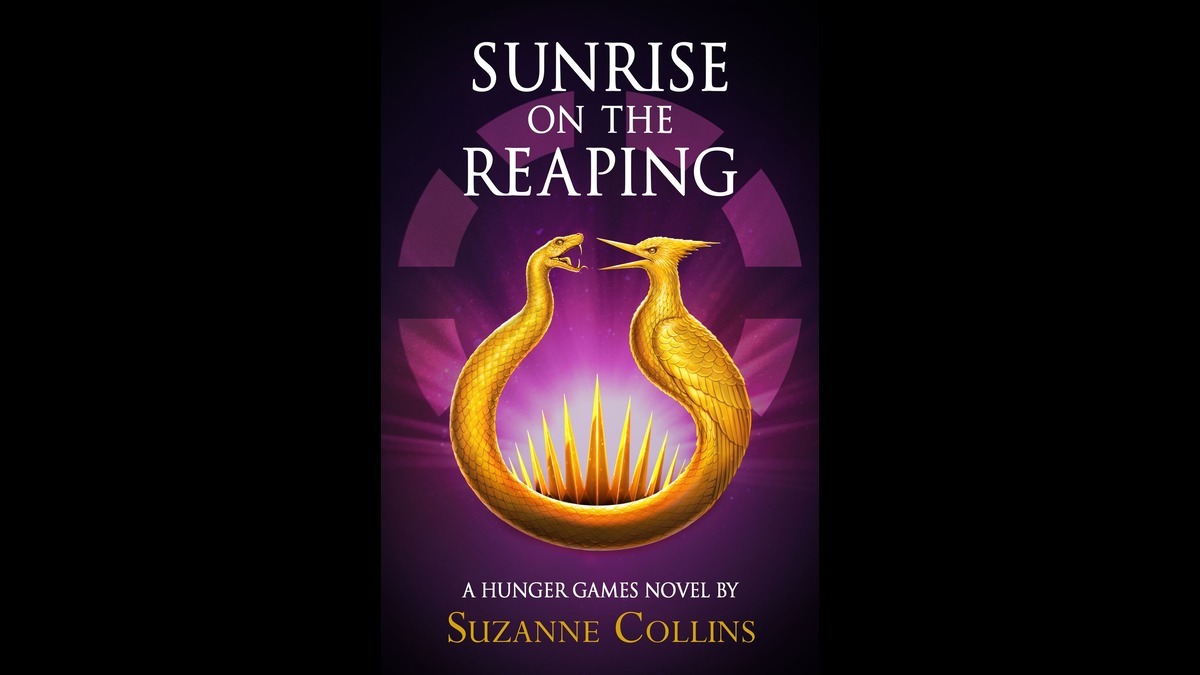⭐⭐⭐
Title: The Hunger Games: Sunrise on the Reaping
Author: Suzanne Collins
Published: March 2025
Genre: Dystopian, Young Adult, Psychological Thriller
Let me just say this up front—I wanted to love this book. Honestly, who wouldn’t be excited about a Haymitch Abernathy origin story? The idea of diving into his Quarter Quell, the infamous 50th Hunger Games, sounded like it would deliver the gut-punch tension and raw survival grit we got in the original trilogy.
But after turning the last page of Sunrise on the Reaping, I sat back and said, “That’s it?”
Don’t get me wrong, there are some solid moments. Suzanne Collins still knows how to build a bleak world that feels eerily possible (looking at you, modern-day reality TV culture). And one character in particular—Maysilee—actually brought life to the page in ways Haymitch… kinda didn’t?
🩸 The Setup: Twice the Tributes, Double the Trauma
Set before The Hunger Games (Book 1), this prequel drops us into the chaos of the second-ever Quarter Quell—a twisted version of the Games where the Capitol decides to double the number of tributes. And of course, poor Haymitch is one of the unlucky ones reaped from District 12.
He’s not the sarcastic drunk mentor we met in Katniss’s time just yet, but you can see how the pain and trauma are starting to shape him. He’s ripped away from Lenora, the girl he loves, and hurled into a Capitol bloodsport with very little hope of making it out. We already know he wins, so that kills a lot of the suspense… but the how should’ve been more captivating.
🌪️ What Worked (Because Yes, Some Things Did)
- Maysilee: Easily the MVP of this book. Sharp, complex, and emotionally grounded—frankly, I found myself wishing she were the main character.
- Arena Twist: No spoilers here, but there’s a mid-book surprise in the Games that had me raise an eyebrow—in a good way. Something about the arena this time was different, and I appreciated that effort to shake up the formula.
Also, Collins sprinkles in some psychological depth. You see Haymitch’s trauma forming in real-time, and there’s something to be said about how grief and survival are portrayed. It’s just… a bit drowned out by everything else.
🤷♀️ What Didn’t Hit the Mark
Okay, here’s where I sigh a little. The formula is identical to the other books: tributes are paraded around, trained, dropped into the arena, and forced to kill or be killed. We’ve seen this. We’ve felt this. But this time? It felt like a recycled script with lower stakes. Why? Because we already know Haymitch survives. That kills the tension, no matter how brutal the arena is.
Also, the constant pining over Lenora—Haymitch’s love interest—felt overdone. She’s introduced briefly and then becomes this haunting, poetic presence that, honestly, I stopped caring about halfway through. The love storyline was dragged out unnecessarily and felt more like filler than a meaningful arc.
Oh, and the poems. Yes, actual poems scattered throughout, which I suspect were inspired by Edgar Allan Poe or meant to be “deep,” but instead felt like they belonged in a totally different book. I found myself skimming those sections… quickly.
🔍 Compared to Collins’ Earlier Works?
This just isn’t on the same level as the original trilogy. The first three books had tight pacing, high emotional stakes, and characters you wanted to follow to the end of the world. Sunrise on the Reaping had potential—but it didn’t have that fire. I’d even say The Ballad of Songbirds and Snakes had more urgency and suspense than this one.
👍 Would I Recommend It?
If you’re a hardcore Hunger Games fan or you just love Suzanne Collins’ writing, sure—give it a go. It adds some context to Haymitch and gives you another look at the Capitol’s cruelty. But if you’re new to the series or hoping for something as gripping as the original trilogy… temper your expectations.
🧠 Final Thoughts
There were sparks of brilliance, but this book didn’t quite catch fire. It dragged in places, especially with the romance and poetic interludes. Haymitch deserved a grittier, tighter story—one that really unpacked how he became the haunted, sharp-edged man we meet later.
I didn’t hate it. But I didn’t love it either.
What about you? Are you tired of prequels, or do you think they still have a place when done right? What’s your take on backstory-heavy books—do they deepen the world or just over-explain the magic?
Let’s talk. 👇
